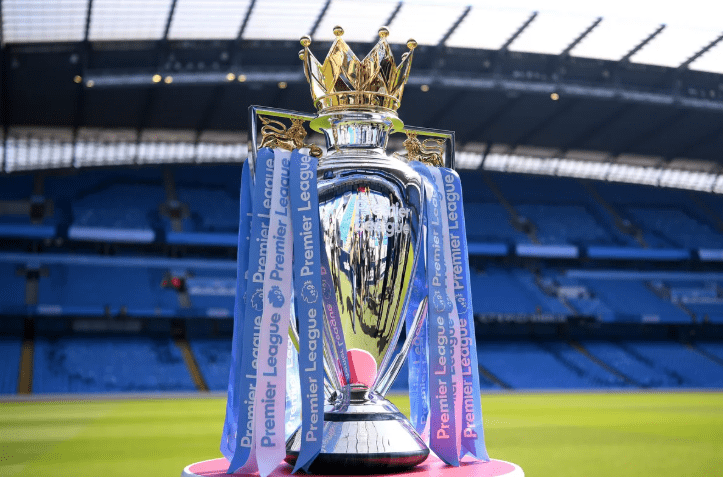Ever wondered which clubs have ruled the roost in English football’s top tier? The Premier League winners list is full of legendary teams, unforgettable goals, and last-minute title drama.
From Manchester United’s golden era to Manchester City’s recent reign, being crowned a Premier League winner isn’t just about big signings—it’s about grit, class, and holding your nerve week in, week out.
This guide gives you a full run-through of the league’s champions, the nearly men, and the fierce battle for glory that’s defined the English game since 1992.
The Premier League will usually play from August to May, with each participating team playing a total of 38 matches – two against each other team, one home and one away game. Majority of the matches will be played on weekend afternoons, with occasional weekday evening fixtures.
Premier League Winners List
Speaking of the most successful teams in the Premier League, Manchester United stands tall with a total of 13 titles to date. Apart from 13 titles, Manchester United also finished as runner-up a total of seven times.
Manchester City is the second most successful team in the Premier League, with a total of eight championship titles. Following are the complete details of the Premier League Winners List, along with the runners-up and third placed team details.
| Season | Champions | Runners-up | Third Place |
| 1992–93 | Manchester United | Aston Villa | Norwich City |
| 1993–94 | Manchester United | Blackburn Rovers | Newcastle United |
| 1994–95 | Blackburn Rovers | Manchester United | Nottingham Forest |
| 1995–96 | Manchester United | Newcastle United | Liverpool |
| 1996–97 | Manchester United | Newcastle United | Arsenal |
| 1997–98 | Arsenal | Manchester United | Liverpool |
| 1998–99 | Manchester United | Arsenal | Chelsea |
| 1999–00 | Manchester United | Arsenal | Leeds United |
| 2000–01 | Manchester United | Arsenal | Liverpool |
| 2001–02 | Arsenal | Liverpool | Manchester United |
| 2002–03 | Manchester United | Arsenal | Newcastle United |
| 2003–04 | Arsenal | Chelsea | Manchester United |
| 2004–05 | Chelsea | Arsenal | Manchester United |
| 2005–06 | Chelsea | Manchester United | Liverpool |
| 2006–07 | Manchester United | Chelsea | Liverpool |
| 2007–08 | Manchester United | Chelsea | Arsenal |
| 2008–09 | Manchester United | Liverpool | Chelsea |
| 2009–10 | Chelsea | Manchester United | Arsenal |
| 2010–11 | Manchester United | Chelsea | Manchester City |
| 2011–12 | Manchester City | Manchester United | Arsenal |
| 2012–13 | Manchester United | Manchester City | Chelsea |
| 2013–14 | Manchester City | Liverpool | Chelsea |
| 2014–15 | Chelsea | Manchester City | Arsenal |
| 2015–16 | Leicester City | Arsenal | Tottenham Hotspur |
| 2016–17 | Chelsea | Tottenham Hotspur | Manchester City |
| 2017–18 | Manchester City | Manchester United | Tottenham Hotspur |
| 2018–19 | Manchester City | Liverpool | Chelsea |
| 2019–20 | Liverpool | Manchester City | Manchester United |
| 2020–21 | Manchester City | Manchester United | Liverpool |
| 2021–22 | Manchester City | Liverpool | Chelsea |
| 2022–23 | Manchester City | Arsenal | Manchester United |
| 2023–24 | Manchester City | Arsenal | Liverpool |
| 2024–25 | Liverpool | Arsenal | Manchester City |
Premier League History
Before 1992, the pinnacle of English football was the First Division. The seismic shift came in the early ’90s when leading clubs broke away from the Football League to form the Premier League, driven by lucrative TV deals and commercial growth.
From 1992 onward, the Premier League revolutionised English football league structure: more global exposure, improved finances, and enhanced competition among the EPL title race protagonists.
With international broadcasting deals, vast sponsorships, and star players from around the world, the Premier League quickly elevated to become one of the world’s most-watched football competitions.
Premier League Format
To fully grasp the journey to being a Premier League champion, it helps to understand the competition’s format:
Twenty Clubs
Each season features twenty teams. They play each other twice (home and away), culminating in 38 matches per team.
Points System
Victory grants three points, a draw earns one, and defeat yields none. The league standings rest on total points, with goal difference and goals scored breaking ties.
Crowning the Champion
At the season’s end, the team topping the table is crowned English top‑flight champions or Premier League champions.
Promotion and Relegation
The bottom three teams are relegated to the Championship, while three teams are promoted, ensuring a dynamic, competitive structure.
European Qualification
The top four finishers qualify for the UEFA Champions League, while fifth place plus one or two domestic cup winners access the Europa League. This intensifies the Premier League title race, as even non-winners seek continental spots.
FAQ
Who has won the most Premier League titles?
Manchester United tops the list of Premier League winners with the most titles.
Which big clubs haven’t won the Premier League?
Spurs, Newcastle, and Everton are still chasing their first title.
How many teams compete each season?
20 teams battle it out over 38 games for the Premier League crown.
Is there promotion and relegation?
Yes. Bottom 3 go down to the Championship, top 3 from there come up.
Why is it hard to become Premier League winners?
Tough fixtures, fierce competition, and the pressure of performing every week.






